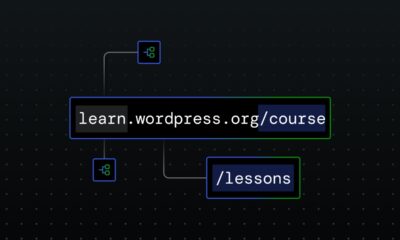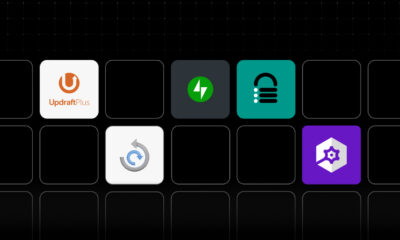SEO
How to Build Backlinks to Your Website

In my previous entry, I talked about how big of a chunk links are to your site’s SEO. In this one, I’ll be talking about the fundamentals of how to build backlinks to your website. Why do you need links? How important is it? Where do I start?
- What are links?
- What is link building?
- Why do you need to learn how to build backlinks to your website?
- Factors to consider in building backlinks
- How to build backlinks to your website
- Key takeaway
Note: This post was originally published in June 2010, and updated in December 2021 to include new tips and data.
What are links?
According to Computer Hope, a link or a hyperlink is a “is an icon, graphic, or text that links to another file or object.” Links connect web pages to one another, making navigation easier.
There are three types of links that you need to know:
- Inbound links
- Internal links
- Outbound links
Inbound links
Inbound links are links from other websites that link back to your website.
Here’s a simplified version to help you visualize it easier:

You can have multiple inbound links from one external website or referring domain, or one inbound link per external website or referring domain.
That’s why when you do a backlink analysis of your website, you will see that your website has so much more backlinks than it does referring domains.
For example, here’s the Semrush backlink analysis for SEO Hacker:

As you can see, in the past couple of months we’ve had around 5,000 referring domains, and we got around 256,000 backlinks from those domains.
There are two types of inbound links: dofollow and nofollow links. Dofollow links pass on link juice to your website, while nofollow links just point other users to your website but don’t pass on link juice.
Internal links
Next, we have internal links. Internal links are links you create between the pages of your own website. The link I placed in the anchor text “internal links” is an example of an internal link.
To visualize:

Internal links have a couple of uses:
- They make navigation between pages easier.
- They help search engine crawlers identify the most important pages of your website.
- They help establish your site structure.
So even if internal links aren’t as important for ranking as inbound links are, they are definitely important as they have their own functions that the other types of links can’t fulfill. By linking between your pages, you get to show your users and the search engine that your content in each webpage is relevant to one another.
Outbound links
Lastly, we have outbound links. These are links you place in your web pages that point to external websites.

Basically, you would want other websites to have outbound links that are directed to your website, making them inbound links.
Webmasters can also reach out to you and request for you to link to their website. Depending on the agreement, you can opt to give them dofollow or nofollow outbound links. When you have a nofollow link, make sure you add the code rel=”nofollow” to avoid passing on your website’s link juice.
Going back to our backlink profile:

You can see that we’ve referred to 868 external domains in the past couple of months.
What is link building?
Link building is the process of getting links back to your website from either the same website (internal backlinks) or other websites.
First off, you have to realize link building is one of the slowest processes that you have to go through to grow your site’s visibility as an SEO practitioner. Links don’t just pop out of nowhere. You have to earn them.
In link building, the most difficult yet most rewarding link to get would be inbound links.
Why do you need to learn how to build backlinks to your website?
Links are one of the fundamental ranking factors that we have. Think of it as word-of-mouth referrals. When you have many people referring your company to their friends and family, that means you’re building your credibility as a trustworthy company with good products and services.
But it’s not everything too. Links give your site more authority and reputation—giving it the power to strengthen the weight of its keywords.
Your keywords are your foundation, but your links make up the building. And what search engines usually look for is the building—then it makes its way down to the foundation. If your building looks good and is tall enough for it to be easily found, then your foundation is given deeper consideration and trust because it can hold up a tall and well-made structure.
The idea behind this is easy: the more links to your site only means your site is referred to by that many other websites. It means that your site must contain something interesting to all those site owners/webmasters, thus people would most probably also find your content useful—therefore, search engines like Google refer you in their search engine results page (SERPs).
Factors to consider in building backlinks
Not all links are good for your site’s ranking. Some links can bring your site down. It’s not altogether devastating—but that only means you have to choose your links carefully. Picking links isn’t an easy SEO task. It’s like one whole module altogether.
In choosing where to get links, there are five major factors to consider:
Domain authority
First, you have to look at the domain authority of the website. Why? Because the higher it is, the more Google juice you can get from it.
Imagine getting a link from Ahrefs vs getting a link from an unknown website. The search engines will determine that your Ahrefs link is of higher quality than if you got some random link. That’s plus points for your website.
Niche
Second, look at the website’s niche. Is your site related to this website? If you’re not related, the links you’re gonna get from that site are next to useless.
How come? Because relevance matters.
This doesn’t mean you can’t get links from forums or directories, but make sure these aren’t low-quality, spammy websites.
Outbound links
Thirdly, look at all the outbound links the site is giving away. Too many outbound links can mean that you’ll be sharing with all the other websites that this site is linking out to—giving you less Google juice compared to sites with low outbound links.
Link sources
Fourth, look at all the sites it gets its links from. Are they reputable sites? Are they related to your niche? Maybe you can get links from those sites too!
Types of links
Fifth, look at the site’s links if they are nofollow links. If you’re trying to rank (especially in Google), nofollow links will not help. So you better look for sites that don’t put nofollow in their links.
Of course, nofollow links can still be useful in directing users to your page (meaning, helping you generate traffic), but dofollow links are still ideal because they pass on link juice to your page.
How to build backlinks to your website
There are many ways to get links. Some are effective in boosting your rank, some are effective in giving you traffic, and some are effective in wasting your time. Here are some of the ways you can build your backlinks:
Directory listing
One way of getting backlinks is to add your website to a reputable online directory. Matthew Woodward has a fantastic tutorial on how to do this one.
Basically, you choose a directory that has high authority and you submit your website to it. The trick here is to look for high-quality directories that are moderated, so you can be sure that the site is trustworthy and isn’t spammy.
Forum posting
Another way to build backlinks to your website is through forum posting. Again, make sure you look for high-quality, moderated forums.
For example, Reddit has a community called Big SEO:

Posting links here is surprisingly difficult, so you have to have built a relationship with this community before you can even link back to your website. That practice helps avoid spammy links.
If you don’t have a Reddit account, you can choose to use Quora. Same practice applies—make sure you don’t spam links. Answer questions and give suggestions honestly, and don’t link back to yourself unless necessary.
Guest blogging
This is probably one of my favorite ways to get backlinks, but it is arguably one of the most laborious. Guest blogging (or guest posting) entails researching reputable sites that allow guest posting, coming up with a topic, writing an article, and undergoing an editing process.
You also have to make sure that you follow the instructions of the website you’re trying to publish your article in. For example, if a website allows only two dofollow links to your website, you wouldn’t want to be dishonest and put three.
Link bait
Link baiting is the practice of creating content that is so relevant, informative, and awesome that other websites will just have to link to it. The goal of course is to have all your content be linkable to, but the reality is not all our content is this way.
To create link bait content, you can consider the following formats according to Semrush:
- Interactive assets
- Data-driven studies and other assets
- Long-form guides
- Visuals
- Controversial or talking-point content
For example, we created a report on the State of SEO in the Philippines for 2022 where we discussed the search landscape in the country, our improvements and predictions for the coming year, how we fared against our top competitors, and so on and so forth.
Those who find this incredibly valuable can link to it. You can also create infographics, videos, and other content that other users will see as worth linking to.
Link exchange
This is another one of my favorite ways to get links. It’s straightforward—you negotiate with a reputable contact to exchange links. For example, you can email them and say that you have a website with a high domain authority and you’re willing to give a dofollow link this month in exchange for a dofollow link to an article you just wrote.
This is also incredibly effective if you guest post a lot. In that way, you won’t be giving dofollow links from your website only (or ever), because you can link to them through the blog you wrote on another website.
Paid links
Paid links are one way to earn backlinks to your website, but they can result in harsh penalties simply because paying for links is manipulation of Google’s algorithm. This is definitely the easiest way to get a backlink, but it’s also the riskiest.
Crowdsourcing
If you don’t have plenty of time to guest post, you can opt to be contacted when companies or writers crowdsource answers for a report or an article they’re writing.
For example, SEO Hacker was featured in a recent report by Databox titled, “Campaign Reporting: How to Gauge for Long Term Effectiveness?”

This was the result of Databox crowdsourcing answers—and seeing that ours was worth including in their report.
Contacting webmasters
One of the most important things you should learn on how to build backlinks to your website is by contacting webmasters. For example, if you have an article that recently linked to their work, or if you noticed that they have a broken link in one of their articles, you can reach out and pitch your article as a replacement.
This is one of the most difficult ways to get links, but like guest blogging, it is one of the most rewarding. See, this isn’t as simple as emailing webmasters and expecting links in return, it’s getting noticed and building a relationship with them first.
We already know how important dofollow links are. If you were in their position, would you answer every single person emailing you for a link? No, right? You would answer only those whom you’ve seen have been interacting with your work consistently.
Internal linking
Lastly, we have to go back to internal linking. This doesn’t help your website in the same way as inbound links do as we’ve mentioned earlier, but it does help your site be more coherent and it generates traffic to the other pages in your website.
Key takeaway
Learning how to build backlinks to your website is definitely still a must in the coming year. It may be a long and tough process as it involves a lot of research, vetting, writing, and relationship-building, but it definitely pays off for your SEO in the long run. Remember to always make sure that the sites you’re requesting backlinks from are reputable sites with high domain authority scores, or else they wouldn’t really count for much.
Do you have other ways to build backlinks? Which one is the most useful for you? Let me know in the comments!
Source link













![How to Create A Website to Sell Products In 8 Steps [+6 Expert Tips] How to Create A Website to Sell Products In 8 Steps [+6 Expert Tips]](https://articles.entireweb.com/wp-content/uploads/2024/10/1727868370_How-to-Create-A-Website-to-Sell-Products-In-8.webp-400x240.webp)
![How to Create A Website to Sell Products In 8 Steps [+6 Expert Tips] How to Create A Website to Sell Products In 8 Steps [+6 Expert Tips]](https://articles.entireweb.com/wp-content/uploads/2024/10/1727868370_How-to-Create-A-Website-to-Sell-Products-In-8.webp-80x80.webp)




You must be logged in to post a comment Login